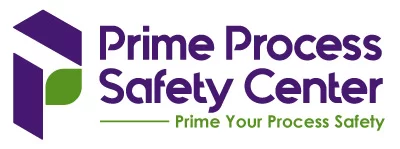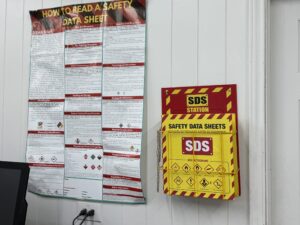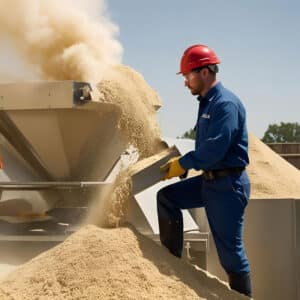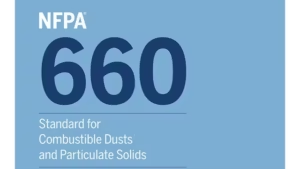We also offer
What Are Process Hazard Analysis (PHA) Facilitation and Scribing Personnel?
In Process Hazard Analysis (PHA), having qualified facilitation and scribing personnel is essential for conducting effective safety reviews. These professionals ensure your PHA sessions are efficient, accurate, and compliant with industry standards.
PHA Facilitators are experienced safety experts who guide the team through structured methodologies like HAZOP, What-If Analysis, or Checklist Analysis. They help the team stay focused, encourage participation, and ensure that all potential hazards, causes, and consequences are thoroughly identified and evaluated.
Scribing personnel play a critical support role by documenting the entire PHA process. They capture key discussions, identified risks, existing controls, and safety recommendations—creating a clear and organized record that serves as the foundation for follow-up actions and regulatory compliance.
Why Are Facilitation and Scribing Important for Process Hazard Analysis (PHA)?
Effective PHA facilitation and scribing ensures:
-
A structured and thorough hazard analysis
-
Accurate and detailed safety documentation
-
A collaborative environment where all voices are heard
-
Consistent focus on risk identification and process safety improvements
-
A defensible record for regulatory audits and internal reviews
Together, these roles ensure your PHA leads to actionable safety improvements and supports your company’s process safety management (PSM) program.
Key Qualifications for Process Hazard Analysis (PHA) Facilitators and Scribes
To deliver high-quality PHAs, facilitators and scribes should have:
-
Deep Process Safety Expertise
Solid understanding of industry hazards, safety systems, and risk management principles -
PHA Methodology Experience
Proficiency in leading and documenting HAZOP, What-If, and other PHA techniques -
Strong Communication Skills
Ability to facilitate discussions, ask insightful questions, and ensure clear team communication -
Analytical and Critical Thinking
Capable of identifying hidden risks and evaluating the effectiveness of safeguards -
Detail-Oriented Scribing
Skilled at capturing technical discussions, decisions, and recommendations without disrupting the session -
Objectivity and Impartiality
Ensure the analysis is fact-based and free of bias -
Familiarity with Regulations
Knowledge of OSHA PSM, EPA RMP, and other regulatory frameworks -
Collaboration Skills
Comfortable working with multidisciplinary teams -
Ongoing Training
Stay current with evolving PHA techniques and industry best practices
Why Do You Need Qualified Process Hazard Analysis (PHA) Personnel?
Hiring qualified PHA facilitators and scribes is not optional—it’s essential for:
-
Thorough risk identification and evaluation
-
Reliable documentation for compliance and audits
-
Effective communication of process hazards
-
Streamlined decision-making on safety improvements
-
Meeting regulatory requirements from OSHA, EPA, and other authorities
-
Building a strong process safety culture
Why Choose Prime Process Safety Center
At Prime Process Safety Center, we specialize in delivering high-quality PHA facilitation and scribing services tailored to your operation’s unique needs.
What Sets Us Apart:
-
Experienced Safety Facilitators
Skilled in HAZOP, What-If, SIL, and full PHA execution -
Meticulous Scribes
Accurate, organized documentation for full traceability -
Custom Risk Assessments
Adapted to your industry, processes, and hazards -
Regulatory Compliance Expertise
Ensure alignment with OSHA, EPA, IEC 61511, and other standards -
Actionable Results
Practical safety improvements, not just paperwork -
Clear Communication
Strong facilitation that encourages participation and clarity -
Ongoing Support
Help with implementation, revalidation, and training
FAQ
1. What is the role of a PHA facilitator?
A PHA facilitator guides the hazard analysis team through the process, ensuring comprehensive identification and assessment of potential hazards and risks in industrial processes.
2. Why are experienced facilitators crucial for PHA?
Experienced facilitators bring in-depth knowledge of process safety and risk assessment methodologies, ensuring effective and thorough hazard analysis and decision-making.
3. What qualifications should a PHA facilitator have?
Facilitators should have extensive knowledge in process safety, experience in PHA methods like HAZOP or What-If analysis, and strong communication and leadership skills.
4. What does a PHA scribe do?
A PHA scribe is responsible for accurately documenting the discussions, findings, and recommendations made during the PHA sessions, ensuring a clear and detailed record.
5. How important is the accuracy of scribing in PHA?
Accurate scribing is crucial as it forms the official record of the PHA, serving as a reference for implementing safety recommendations and for future analyses.
6. What skills are essential for a PHA scribe?
Scribes should have attention to detail, understanding of process safety concepts, and the ability to clearly and concisely document technical discussions and outcomes.
7. Can facilitation and scribing be done by the same person?
While possible, it's typically more effective to have separate individuals for facilitation and scribing to ensure each role is fully focused and performed effectively.
8. How do facilitators and scribes contribute to the success of a PHA?
Facilitators ensure the PHA is comprehensive and efficient, while scribes ensure that all critical information is captured, both contributing significantly to the overall quality and effectiveness of the PHA.
9. Should facilitators and scribes have industry-specific knowledge?
Yes, having industry-specific knowledge enhances their ability to understand the nuances of the processes being analyzed and contribute more effectively to the PHA.
10. How often should a facilitator and scribe update their skills and knowledge?
Regularly, as staying updated with the latest process safety developments, regulatory changes, and hazard analysis techniques is crucial for maintaining effectiveness in their roles.














